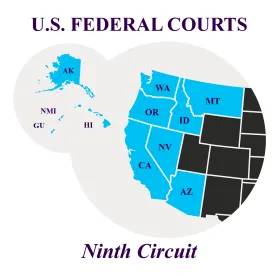A recent Ninth Circuit decision has generated considerable controversy amongst employee benefits practitioners by holding that plan fiduciaries engaged in prohibited transactions when they amended the plan’s existing recordkeeping contract to add brokerage and investment advisory services. In so ruling, the Court remanded the case to the district court to consider whether the transactions fell within the exemption for reasonable service agreements and, independently, whether it was imprudent for plan fiduciaries not to consider third-party compensation earned by the plan’s recordkeeper. The case is Bugielski v. AT&T Services, Inc., 76 F. 4th 894 (9th Cir. 2023).
Participants in AT&T’s 401(k) plan sued the plan administrator and the plan’s investment committee, alleging that defendants engaged in prohibited transactions and breached their duty of prudence by failing to investigate and evaluate all compensation earned by the plan’s longtime recordkeeper. The claims apparently were prompted by amendments to AT&T’s contract with its recordkeeper, which gave plan participants access to the recordkeeper’s brokerage account platform and to investment advisory services through a third-party advisor. Under these arrangements, the recordkeeper received revenue-sharing fees from the mutual funds available to participants via the brokerage account platform; and, through its own agreement with the investment advisor, the recordkeeper received a portion of the fees that the investment advisor earned from managing participant accounts.
The district court granted summary judgment in favor of the defendants on all claims. As relevant here, the court held that the claims failed because the defendants had no duty to consider the compensation that the recordkeeper earned from the brokerage account platform or the investment advisor when evaluating the recordkeeper’s overall compensation.
On appeal, the Ninth Circuit reversed and remanded for further proceedings.
The Ninth Circuit held that the amendment of AT&T’s contract with the recordkeeper was a prohibited transaction for “furnishing of services” between the plan and a party-in-interest, and therefore could be permitted only if it satisfied the requirements for ERISA’s “reasonable contract” exemption (section 408(b)(2)). The Court explained that, in its view, Congress intended ERISA’s prohibited transaction rules to be broad enough to capture even arm’s-length transactions with service providers, while noting the availability of the “reasonable contract” exemption. In so ruling, the Court rejected the reasoning of other circuit court decisions—including Sweda v. University of Pennsylvania, 923 F.3d 320 (3d Cir. 2019) and Albert v. Oshkosh Corp., 47 F.4th 570 (7th Cir. 2022) (previously discussed here and here)—which more narrowly construed the prohibition against “furnishing of services” based in part on concerns that a broad, per se construction of the statute would hinder fiduciaries’ ability to contract with third parties for essential services. The Third Circuit instead required that a plaintiff plead facts supporting an element of intent to benefit a party-in-interest to state a claim under that section of ERISA. The Ninth Circuit similarly disagreed with the Seventh Circuit’s analysis in Albert, and further distinguished that case factually because it involved the payment for services under a new contract rather than the amendment of a longstanding agreement.
The Ninth Circuit similarly concluded that the duty of prudence requires consideration of the compensation the recordkeeper received from the brokerage account platform and the investment advisor.
The Court thus remanded the case to the district court to consider whether the transactions qualified for the “reasonable contract” exemption, i.e., whether the recordkeeper received no more than “reasonable compensation” from all sources for the services it provided to the plan, and to determine whether defendants sufficiently considered all components of the recordkeeper’s compensation to satisfy their duty of prudence.
Proskauer’s Perspective
As noted, the Ninth Circuit’s opinion has generated considerable controversy—so much so that AT&T filed a petition for rehearing supported by a coalition of amici. We are hopeful that the Ninth Circuit will either reverse course or clarify that the decision is limited to the unique facts presented by this case, i.e., the Court’s determination that plaintiffs plausibly alleged that plan fiduciaries failed to consider both direct and indirect compensation when evaluating the reasonableness of the service provider’s compensation under the amended agreement.






 />i
/>i
